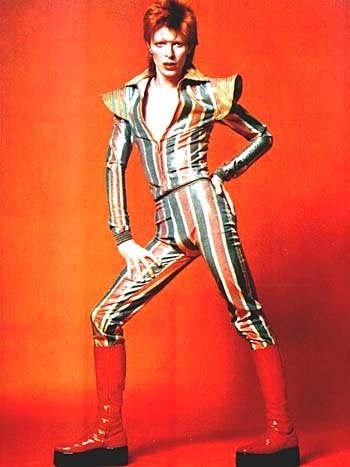The term “queer” as an adjective can be defined as strange or odd from a conventional viewpoint, unusually different, singular, suspicious, shady, and to be of a questionable nature or character. All of these definitions share the connotation of difference, that to be queer is to be something other than normal. As such, the term has been appropriated by heteronormative culture as a slang term for homosexuals. This use of the term as slang is abusive in nature, but this abuse and conflict is utilized by queer theory. In Judith Butler’s "Critically Queer" she says, “The term ‘queer’ has operated as one linguistic practice whose purpose has been the shaming of the subject it names or, rather, the producing of a subject through that shaming interpellation. ‘Queer’ derives its force precisely through the repeated invocation by which it has become linked to accusation, pathologization, insult.” In comparison to Lesbian and Gay Criticism (which in its name is placed in an identity category, the politics of which are an issue for Judith Butler and queer theory in general) queer theory uses the opposition to and in the term “queer” to provide agency in the analysis of anything that deviates from heterosexual norms as well as the potential of queering subjects. To queer is to reveal curiosity or queerness, as evident by Shakesqueer, which examines Shakespearean works to reveal queer elements in its themes and characters. Queer theory, unlike lesbian feminism as explained by Barry, is not woman centered, nor man centered, and rejects female separatism through the awareness of the similar political and social interests of both gay men and lesbians and anyone that has become a subject of the queer stigma through the shaming interpellation.
Inherent in queer theory is an issue surrounding identity politics. Complicated in nature, the issue lies in identifying with a particular identity while simultaneously rejecting identity politics. Identification in itself is complicated by the relationship between gender and sexuality, and the utilization of a particular identity for political reasons is complicated by the notion of performance of both gender and sexuality.
Butler's example, in "Imitation and Gender Insubordination," is that sexuality as part of the unconscious is complicated by attempts at transparent sexuality (through "coming out") which may cease sexuality's existence as sexuality. Being out relies on being in, and in a heteronormative society, sexuality is always assumed to be hidden. By coming out, a person reveals their sexuality, but the other that they come out to does not know the meaning or implications of that sexuality, and the subject is once again put in a position of scrutiny and Otherness. Through coming out there is a constant deferral of meaning, but it is only sexuality that does not conform to the norm that must come out and endlessly defer a signified. Since sexuality can mean and manifest in a multitude of ways, there is no way to define or name sexuality without placing the person in the queer subject position and therefore back in the closet. Identity through sexuality means a perpetually queer subject position. Butler cites the instability of identity categories in relation to sexuality, and it is the instability of these categories that appeals to her through pleasure derived by transgressing them. Through transgression and the constant shifting of meaning, sexuality and identity can be utilized to deconstruct heteronormativity. Butler argues that drag helps to illustrate that all gender is a performance, and by choosing to identify and thereby perform as a lesbian while simultaneously being a lesbian, there is a repetition of the "I," which constitutes and contests the coherence of that "I." If there is a lack of coherence in an identity produced by repeated performances, then the assumption of an identity for political reasons illustrates that there is instability in identity politics. Then, it can be argued, that by identifying with a particular identity the instability of identity categories can be revealed and identity politics can be rejected.
An example of the transgression of identity categories can be seen in David Bowie (and a nod must go to The Pedagogical Imperative for a bit of inspiration). In his many media incarnations (Ziggy Stardust, the Man Who Fell to Earth, The Thin White Duke, an accused Nazi, a Goblin King in love with Jennifer Connelly in Labyrinth), Bowie continually transgresses heteronormative views of sexuality and gender. He identifies as a straight man (and he has been identified by others as a bisexual, lest we forget his alleged liasons with Mick Jagger), but his performance of sexuality is not essential to his identity. He rejects the notion that his sexuality defines him (thereby rejecting identity politics), and this allows for ambiguity and a certain androgyny.

It is true how 'queer' can be used abusively and Butler makes it clear that the word has become this way. However, I believe that even homosexuals use the word 'queer' to describe themselves or other things and clearly do not use it in a destructive way. Although its use has surpassed its original time usage, it is still used sporadically in the gay community, and not necessarily as a bad thing. "We're here, we're queer, get used to it."
ReplyDeleteAre you saying that David Bowie calls himself queer? or are you calling David Bowie queer?
The act of calling Bowie queer relates back to the negative connotation, like it is a bad thing. While you mentioned the ambiguity of Bowie, naming him queer gives a little less meaning to the term. If you are saying that David Bowie calls himself queer, that too is limiting the meaning of the word. By calling himself queer, Bowie completely contradicts himself by saying how he is straight but performs in ways not necessarily aligning with his sexual identity, but calling himself queer would make it so that he is performing this way because of his sexuality.